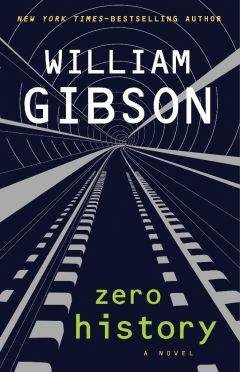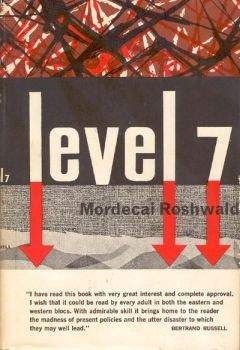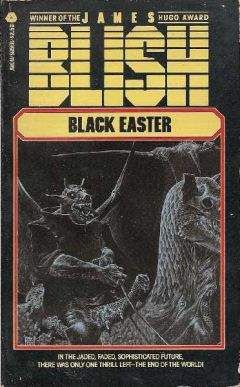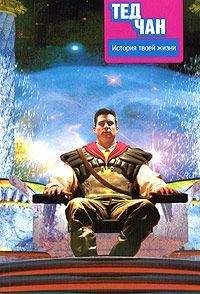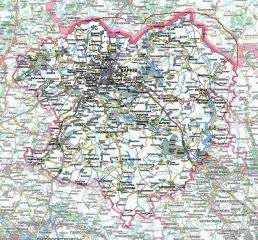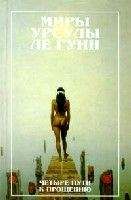Connie Willis - Blackout
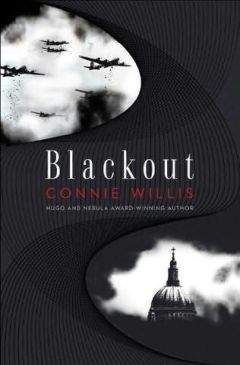
Скачивание начинается... Если скачивание не началось автоматически, пожалуйста нажмите на эту ссылку.
Жалоба
Напишите нам, и мы в срочном порядке примем меры.
Описание книги "Blackout"
Описание и краткое содержание "Blackout" читать бесплатно онлайн.
In her first novel since 2002, Nebula and Hugo award-winning author Connie Willis returns with a stunning, enormously entertaining novel of time travel, war, and the deeds—great and small—of ordinary people who shape history. In the hands of this acclaimed storyteller, the past and future collide—and the result is at once intriguing, elusive, and frightening.
Oxford in 2060 is a chaotic place. Scores of time-traveling historians are being sent into the past, to destinations including the American Civil War and the attack on the World Trade Center. Michael Davies is prepping to go to Pearl Harbor. Merope Ward is coping with a bunch of bratty 1940 evacuees and trying to talk her thesis adviser, Mr. Dunworthy, into letting her go to VE Day. Polly Churchill’s next assignment will be as a shopgirl in the middle of London’s Blitz. And seventeen-year-old Colin Templer, who has a major crush on Polly, is determined to go to the Crusades so that he can “catch up” to her in age.
But now the time-travel lab is suddenly canceling assignments for no apparent reason and switching around everyone’s schedules. And when Michael, Merope, and Polly finally get to World War II, things just get worse. For there they face air raids, blackouts, unexploded bombs, dive-bombing Stukas, rationing, shrapnel, V-1s, and two of the most incorrigible children in all of history—to say nothing of a growing feeling that not only their assignments but the war and history itself are spiraling out of control.
“Reversed? And then what the hell do I do about Pearl Harbor? I’m supposed to be an American Navy lieutenant. You’ve got these alternating, for God’s sake-British, American, British! This isn’t an ordinary mission where I’m there for a year. I’m only going to be in each of these places a few days. I can’t afford to spend it faking an accent and worrying about what to call things.”
“I understand,” Badri said placatingly, “but-”
The door opened and a burly young man charged in. “I want to speak to you,” he said to Badri and marched him over to the far corner of the lab. “What the bloody hell do you think you’re doing moving my drop up?” Michael heard him say, so apparently he wasn’t the only one whose mission they’d been messing with.
He looked over at Linna. She was still on the phone. “-to February sixth, 1942,” she read from the printout.
“How the bloody hell do you expect me to be ready by Monday morning?” the burly guy shouted.
“Denys Atherton,” Linna droned on, “March first, 1944-”
“I understand your vexation,” Badri said.
“My vexation?” the young man exploded.
Go ahead, Michael thought. Hit him. Do it for both of us, but he didn’t. He stormed out, banging the door behind him so violently that Linna jumped. “-to June fifth, 1944,” she said into the phone.
Jesus, how many historians did they have going to World War II right now? Charles was right. They were going to start crashing into each other. He wondered if that was why they’d changed the order of his drops. But if that was the case, they’d have sent him to Salisbury or the World Trade Center.
Badri came back over to Michael. “Can’t you pose as an American reporter?”
“It isn’t just the accent. It’s the prep. I can’t be ready in three days. I don’t have any clothes or papers and I’ve only done the general research, not the-”
“We’re aware you’ll need time for additional prep,” Badri said placatingly, “so we’ve moved the drop to Saturday-”
“You’ve given me one extra day? I’ll need at least two weeks. And now I suppose you can’t do that either.”
“No, no, of course we can reschedule,” Badri said, turning to the console, “but you’ll have to go with lab availability, and we’re extremely heavily booked. Let me see,” he peered at the screen, “the fourteenth might work… no… it will be at least three weeks. I think you’d do better to shorten the prep time with implants. The lab can arrange for you to-”
“I’ve already had my limit. You’re only allowed three, and an L-and-A counts as two. And I had ‘Historical Events-1941,’ which will come in really handy at Dunkirk.”
“There’s no need for sarcasm,” Badri said. “The lab can arrange for a waiver so you can have an additional-”
“I don’t want a waiver. I want you to change the order back the way it was.”
“I’m afraid that’s impossible. And the next open date we have is May twenty-third, which will throw your other drops later. There’s a possibility we might be able to work you in sooner if there’s a cancellation, but-” The screen began blinking. “Sorry. This will have to wait.”
“It can’t. I-”
“Linna,” Badri said, ignoring him. “Retrieval.”
The beeping became more insistent, and a faint shimmer appeared within the folds of the net. It brightened and spread, and Gerald Phipps was standing in the gauzy folds, pushing his spectacles up on his nose. “I told you there wouldn’t be any slippage,” he said.
“None at all?” Badri asked.
“Nearly. Twenty-two minutes. It only took me two hours to arrange everything. I posted the letters, made my trunk call, took the-”
“What about your return?” Badri asked. “Did the drop open on time?”
“Not the first time, but there were boats on the river. They very likely kept it from opening.” He walked over to the console. “When do I go through for my assignment?”
“Friday at half past ten,” Badri said, and he must not have changed his drop because Phipps nodded, said, “I’ll be here,” and started for the door.
“I’m still waiting for you to tell me why you can’t change my drop back to Pearl Harbor,” Michael said before Badri could turn to the console.
“You must be sent in the authorized order-”
“I beg your pardon, Badri,” Linna interrupted. She was back on the phone. “What was the slippage on Phipps’s drop?”
“Twenty-two minutes,” Badri said.
“Twenty-two minutes,” she repeated into the phone.
“Okay, I’ll make you a deal,” Michael said. “I’ll go to Dunkirk, and in exchange you send me to Pearl Harbor and the other sections I need the American accent for, and then to Salisbury and North Africa. Deal?”
Badri shook his head. “I can only send historians in the authorized order.”
“Who did this authorizing?”
“Badri,” Linna called, “did Phipps’s return drop open on schedule?”
“I’ll be there in a moment, Linna,” Badri said, and the beeping started up again. “I have another historian coming through, Mr. Davies. Either you can go on Saturday, or I can postpone your drop to May twenty-third, which will move your Pearl Harbor drop to-” he turned to the console-“the second of August, and your El Alamein drop to the twelfth of November.”
At which rate it would take him two years to finish his project. “No,” he said. “I’ll be ready by Saturday.” Somehow.
He went straight to Props to tell them he needed a press card, a passport, and whatever other papers an American in England in 1940 needed, and that he had to have them by Thursday morning. When they told him that wasn’t possible, he told them to take it up with Dunworthy and went over to Wardrobe, where he was told they couldn’t measure him for a reporter’s costume until he’d returned the dress whites, and went back to his rooms to begin the impossible task of memorizing everything necessary for the assignment.
He didn’t even know where to begin. He needed to find out who the civilian heroes of the evacuation had been, the names of their boats, when they’d arrived back in Dover, where the docks were and how to get access to them, where they’d gone after they got to Dover, where the train station was. And the hospital, in case the hero’d been injured. The list went on and on. And that was just so he could do his interviews. He also needed tons of background information on the evacuation and the war in general. And on local customs.
That was one good thing about having to be an American. It would give him an excuse for not knowing things. But he would still need to know what had happened during the months leading up to Dunkirk, especially since he was supposed to be a reporter.
First things first. He called up “Heroes of Dunkirk” and got to work, hoping Charles and Shakira wouldn’t suddenly arrive to practice the foxtrot. They didn’t, but Linna called. “Don’t tell me,” he said. “You changed the order again.”
“No, you’re still scheduled for the evacuation of Dunkirk, but we’re having difficulty finding a drop site. Every one we’ve tried is indicating probable slippage of from five to twelve days, and Badri was wondering if-”
“No, I can’t miss part of it, if that’s what you’re suggesting. The entire evacuation only lasted nine days. I have to be there by May twenty-sixth.”
“Yes, we know that. We were just wondering if you had any suggestions for a site. You know the events in Dover better than we do. Badri thought you might be able to suggest a location that might work.”
Nowhere near the docks obviously. And not the main part of town. It would be swarming with officers from the Admiralty and the Small Vessels Pool. “Have you tried the beach?” he asked.
“Yes. No luck.”
“Try the beaches north and south of town,” he suggested, though he doubted that would work either with so many boats around. And England had been expecting to be invaded; the beaches were likely to be fortified. Or mined. “Try something on the outskirts of Dover, and I’ll hitch a ride in to the docks. There’ll be plenty of cars headed that way.” And if it was a military vehicle, it might solve his problem of how to get onto the docks.
But Badri called back two hours later to say that none of those had worked. “We need to go farther afield. I need a list from you of nearby villages and other possible sites,” Badri said, which meant Mike had to spend the rest of the day in the Bodleian, poring over maps of 1940 England-looking for secluded spots within walking distance of Dover-instead of what he should be doing. At six he took the list to the lab, handed it to Badri (who was being shouted at by a guy in a doublet and tights whose schedule had been changed), and went back to the Bodleian to work on his heroes.
There were almost too many to choose from. In reality, every one of the solicitors and City bankers and other weekend sailors had been a hero to take their unarmed pleasure yachts and sailboats and skiffs into enemy fire, many of them making multiple trips.
But some had performed acts of extraordinary bravery-the badly injured petty officer who’d held off six Messerschmitts with a machine gun while the troops boarded; the accountant who’d ferried load after load of soldiers out to the Jutland under heavy fire; George Crowther, who’d given up his chance at rescue to stay and help the ship’s surgeon on the Bideford; the retired Charles Lightoller, who, not content with already having been a hero on the Titanic, had taken his weekend cruiser over and brought back 130 soldiers.
But not all of them had come back to Dover. Some had gone to Ramsgate instead; some had come back on a different boat than the one they took over-Sub-Lieutenant Chodzko had gone over on the Little Ann and come home on the Yorkshire Lass-and one fishing boat captain had had three boats shot out from under him. And some hadn’t come back at all. And for the ones who had returned to Dover, there were almost no details about which pier they’d docked at or when. Which meant he’d better have a bunch of backup heroes in case he couldn’t find the ones he wanted to interview.
It took him all night. As soon as Wardrobe opened in the morning, he took his dress whites back and had them measure him for whatever the hell it was American World War II reporters wore, and then went back to Balliol to start in on the Dover research. Charles, attired in tennis whites, was just coming out the door. “The lab phoned. You’re to ring them back.”
“Did they say if they’d found a drop site?”
“No. I’m off to prep for Singapore. The colonials spent all their time playing tennis.” He waved his racket at Michael and left.
Michael called the lab. “I can’t find anything within a five-mile radius of Dover that will open before June sixth,” Badri said. “I’m going to try London. You could take the train to Dover.”
And what if you can’t find a drop site in London either? Mike wondered. That would mean the problem wasn’t just finding a spot where nobody would see him come through-it was the evacuation itself. History was full of divergence points nobody could get anywhere near-from Archduke Ferdinand’s assassination to the battle of Trafalgar. Events so critical and so volatile that the introduction of a single variable-such as a time traveler-could change the outcome. And alter the entire course of history.
He’d known Dunkirk was one of them; Oxford had been trying and failing to get to it for years. But he hadn’t expected Dover to be one. If it was, there went one whole chunk of his assignment. On the other hand, it would mean he could go to Pearl Harbor, which he was actually ready for. And if Dover wasn’t a divergence point, this delay gave him more time to prep. And more things he needed to learn. Such as which London station the trains to Dover left from and when. And he still had the overview of the evacuation to do. And the war. And everything else. In three days. On no sleep.
He wished he wasn’t limited to a single implant. He could use half a dozen. He narrowed it down to the events of 1940, the events in Dunkirk, and a list of the small craft that had participated, decided he’d pick when he got to Research, and went over there.
The tech shook her head. “If you’re going as a reporter, you’ll need to know how to use a 1940s telephone. To file your stories,” she said. “And a typewriter.”
Michael wasn’t going to file any stories. All he was going to do was interview people, but if he did end up in a situation where he had to type something, that kind of ignorance could blow his cover, and there’d been Nazi spies in England in 1940. He didn’t want to spend the evacuation in jail.
He went over to Props and borrowed a typewriter to see if he could fake it, but he couldn’t even figure out how to get the paper in it. He went back to Research, talked the tech into putting an abridged version of typewriter skills and Dunkirk events in the same subliminal, had it, and dragged back to his rooms to get some sleep and then memorize everything else.
Charles was there, attired in a dinner jacket and practicing putts on the carpet. “Don’t tell me,” Mike said. “The colonials spent all their time playing golf.”
“Yes,” Charles said, lining up his putt. “That is, when they weren’t taking telephone messages for their roommates.”
“The lab called?”
“No, Props. They said to tell you they can’t have your papers ready till next Tuesday.”
“Next Tuesday?” Mike bellowed. He called, told them in no uncertain terms that he had to have them by Friday at the latest, and slammed down the phone. It rang again immediately.
It was Linna. “Good news,” she said. “We’ve found you a drop site.”
Which meant Dover wasn’t a divergence point after all. Thank God. “Where is it?” he asked. “In London?”
“No, it’s just north of Dover, six miles from the docks. But there’s a problem. Mr. Dunworthy wanted to move one of the retrieval times up, so we gave them your Saturday slot.”
Great, Michael thought. This’ll give me a couple of extra days. I’ll be able to memorize that list of small craft. And get some more sleep. “What day did you move it back to?”
“Not back,” she said, “forward. You go through Thursday afternoon-tomorrow-at half past three.”
To the Trenches
-SIGN IN LONDON, 1940Oxford-April 2060
“IN TWO DAYS?” EILEEN SAID, LOOKING OVER LINNA’S shoulder at her console in the lab. She’d gone to see Mr. Dunworthy as soon as she came through from Backbury and then come back to the lab to schedule her return. “But I need to learn to drive. What about next week?”
Linna called up another schedule. “No, I’m sorry, we haven’t anything then either.”
“But I can’t possibly learn to drive in two days. What about the week after next?”
Linna shook her head. “That’s even worse. We’re totally swamped. Mr. Dunworthy’s ordered all these schedule changes-”
Подписывайтесь на наши страницы в социальных сетях.
Будьте в курсе последних книжных новинок, комментируйте, обсуждайте. Мы ждём Вас!
Похожие книги на "Blackout"
Книги похожие на "Blackout" читать онлайн или скачать бесплатно полные версии.
Мы рекомендуем Вам зарегистрироваться либо войти на сайт под своим именем.
Отзывы о "Connie Willis - Blackout"
Отзывы читателей о книге "Blackout", комментарии и мнения людей о произведении.







